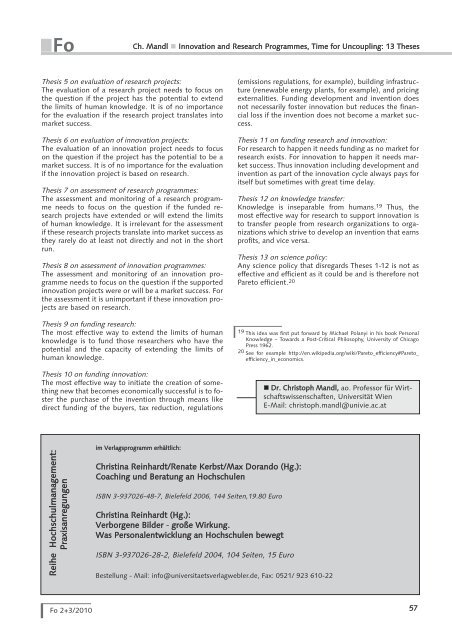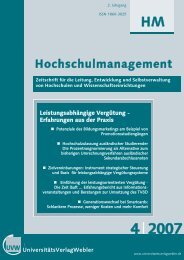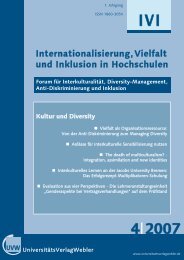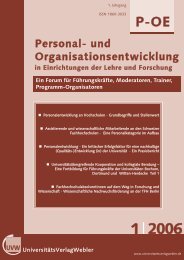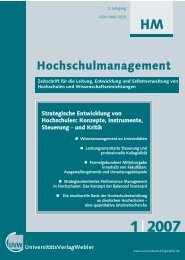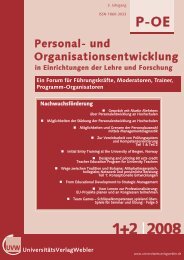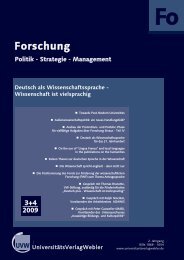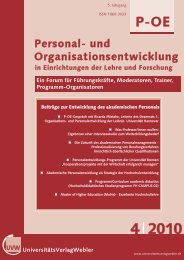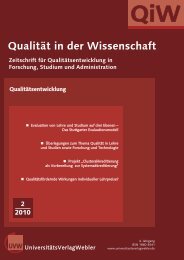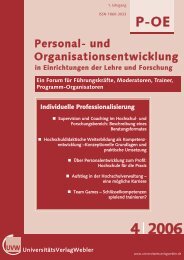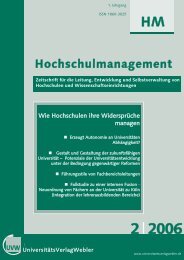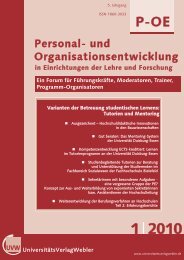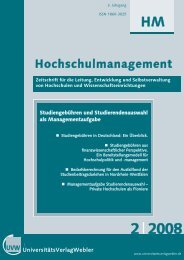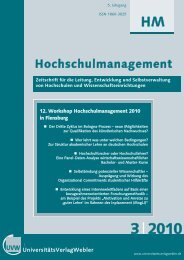Fo - UniversitätsVerlagWebler
Fo - UniversitätsVerlagWebler
Fo - UniversitätsVerlagWebler
Erfolgreiche ePaper selbst erstellen
Machen Sie aus Ihren PDF Publikationen ein blätterbares Flipbook mit unserer einzigartigen Google optimierten e-Paper Software.
<strong>Fo</strong><br />
Ch. Mandl • Innovation and Research Programmes, Time for Uncoupling: 13 Theses<br />
Thesis 5 on evaluation of research projects:<br />
The evaluation of a research project needs to focus on<br />
the question if the project has the potential to extend<br />
the limits of human knowledge. It is of no importance<br />
for the evaluation if the research project translates into<br />
market success.<br />
Thesis 6 on evaluation of innovation projects:<br />
The evaluation of an innovation project needs to focus<br />
on the question if the project has the potential to be a<br />
market success. It is of no importance for the evaluation<br />
if the innovation project is based on research.<br />
Thesis 7 on assessment of research programmes:<br />
The assessment and monitoring of a research programme<br />
needs to focus on the question if the funded research<br />
projects have extended or will extend the limits<br />
of human knowledge. It is irrelevant for the assessment<br />
if these research projects translate into market success as<br />
they rarely do at least not directly and not in the short<br />
run.<br />
Thesis 8 on assessment of innovation programmes:<br />
The assessment and monitoring of an innovation programme<br />
needs to focus on the question if the supported<br />
innovation projects were or will be a market success. <strong>Fo</strong>r<br />
the assessment it is unimportant if these innovation projects<br />
are based on research.<br />
Thesis 9 on funding research:<br />
The most effective way to extend the limits of human<br />
knowledge is to fund those researchers who have the<br />
potential and the capacity of extending the limits of<br />
human knowledge.<br />
Thesis 10 on funding innovation:<br />
The most effective way to initiate the creation of something<br />
new that becomes economically successful is to foster<br />
the purchase of the invention through means like<br />
direct funding of the buyers, tax reduction, regulations<br />
(emissions regulations, for example), building infrastructure<br />
(renewable energy plants, for example), and pricing<br />
externalities. Funding development and invention does<br />
not necessarily foster innovation but reduces the financial<br />
loss if the invention does not become a market success.<br />
Thesis 11 on funding research and innovation:<br />
<strong>Fo</strong>r research to happen it needs funding as no market for<br />
research exists. <strong>Fo</strong>r innovation to happen it needs market<br />
success. Thus innovation including development and<br />
invention as part of the innovation cycle always pays for<br />
itself but sometimes with great time delay.<br />
Thesis 12 on knowledge transfer:<br />
Knowledge is inseparable from humans. 19 Thus, the<br />
most effective way for research to support innovation is<br />
to transfer people from research organizations to organizations<br />
which strive to develop an invention that earns<br />
profits, and vice versa.<br />
Thesis 13 on science policy:<br />
Any science policy that disregards Theses 1-12 is not as<br />
effective and efficient as it could be and is therefore not<br />
Pareto efficient. 20<br />
19 This idea was first put forward by Michael Polanyi in his book Personal<br />
Knowledge – Towards a Post-Critical Philosophy, University of Chicago<br />
Press 1962.<br />
20 See for example http://en.wikipedia.org/wiki/Pareto_efficiency#Pareto_<br />
efficiency_in_economics.<br />
• Dr. Christoph Mandl, ao. Professor für Wirtschaftswissenschaften,<br />
Universität Wien<br />
E-Mail: christoph.mandl@univie.ac.at<br />
Reihe Hochschulmanagement:<br />
Praxisanregungen<br />
im Verlagsprogramm erhältlich:<br />
Christina Reinhardt/Renate Kerbst/Max Dorando (Hg.):<br />
Coaching und Beratung an Hochschulen<br />
ISBN 3-937026-48-7, Bielefeld 2006, 144 Seiten,19.80 Euro<br />
Christina Reinhardt (Hg.):<br />
Verborgene Bilder - große Wirkung.<br />
Was Personalentwicklung an Hochschulen bewegt<br />
ISBN 3-937026-28-2, Bielefeld 2004, 104 Seiten, 15 Euro<br />
Bestellung - Mail: info@universitaetsverlagwebler.de, Fax: 0521/ 923 610-22<br />
<strong>Fo</strong> 2+3/2010<br />
57


